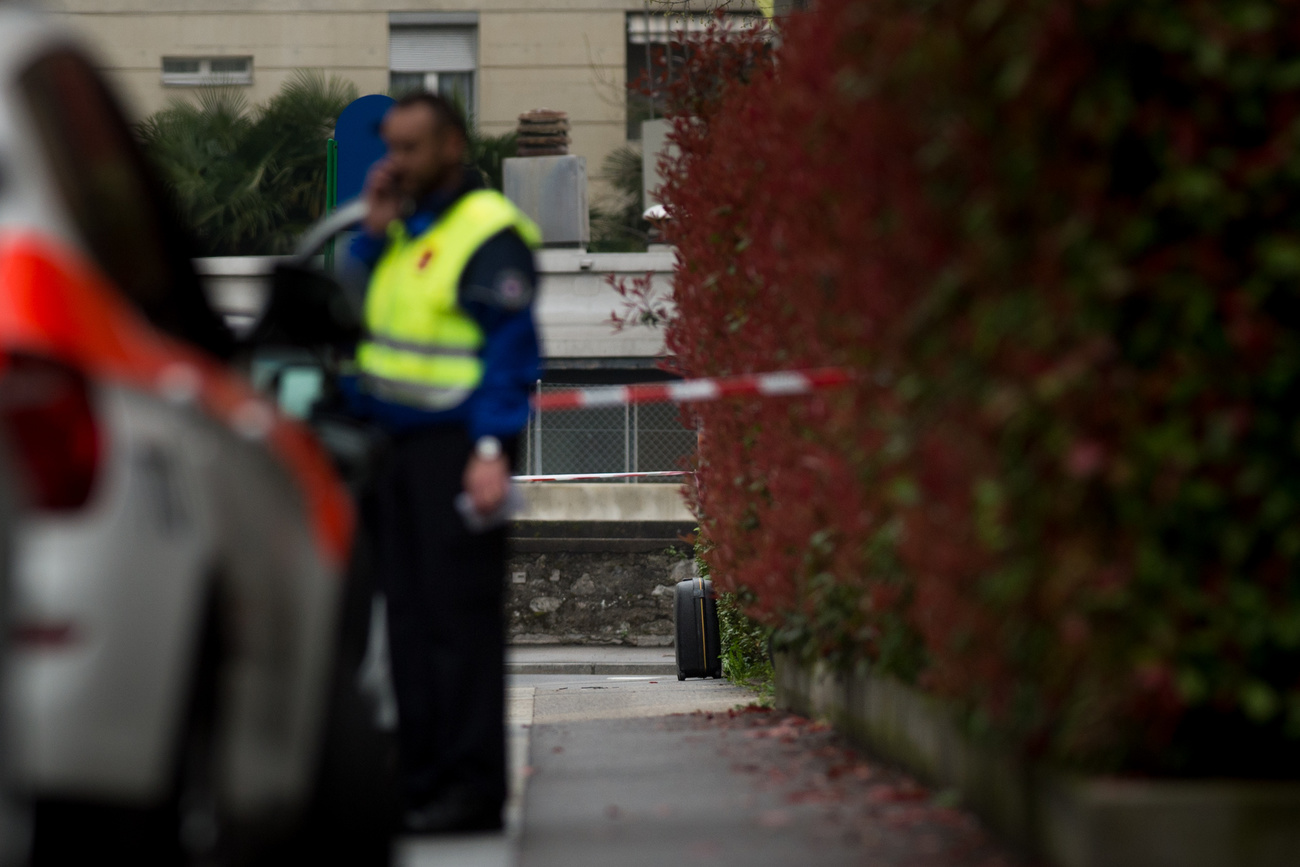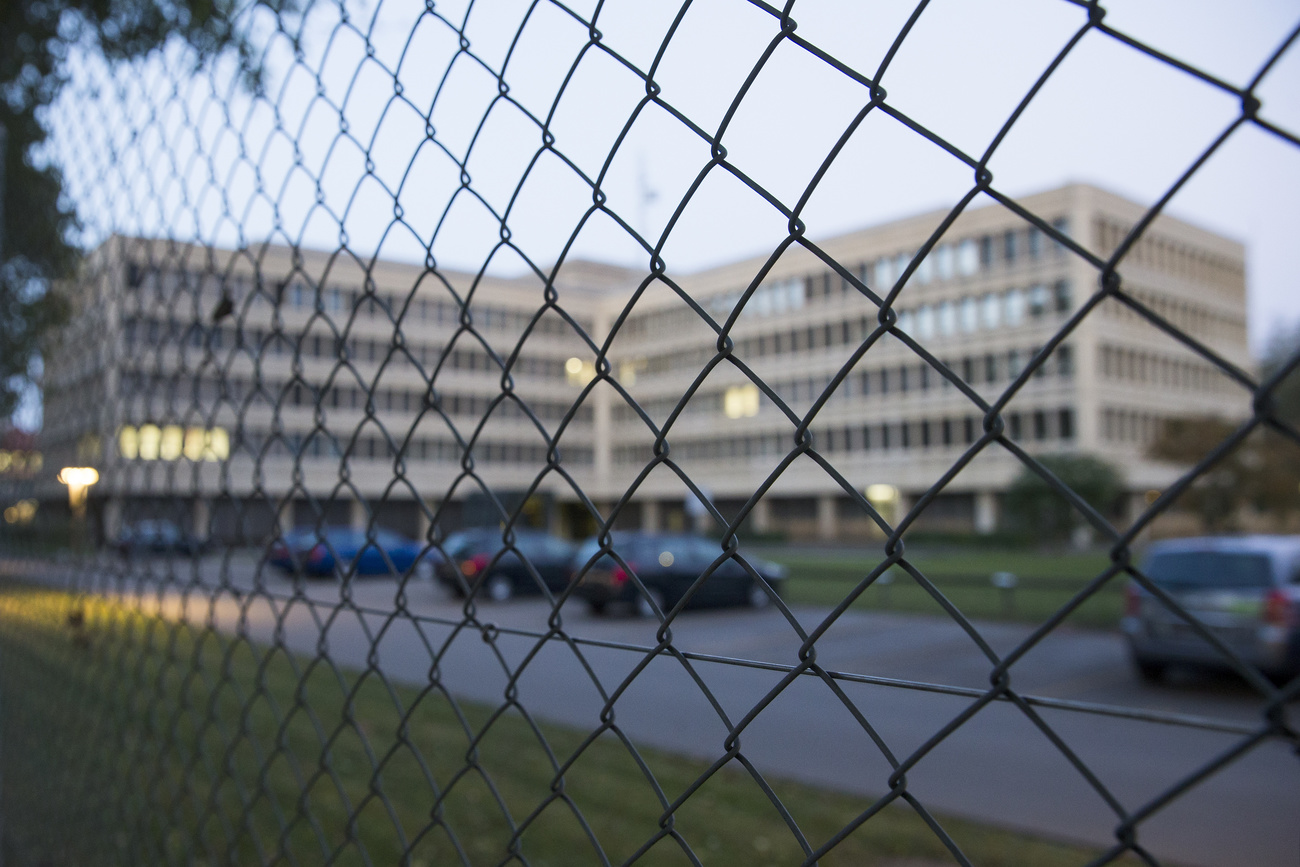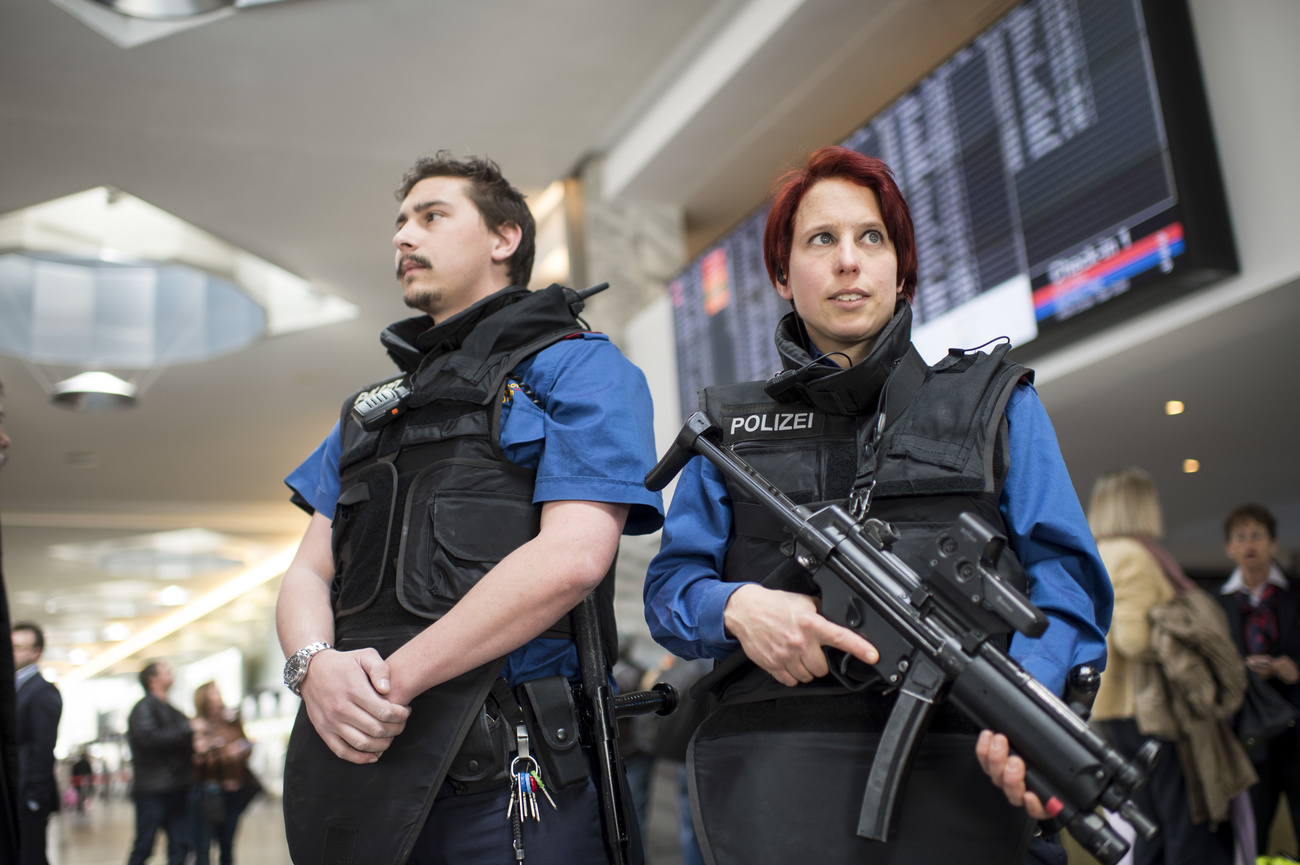Swiss anti-terror law: more police powers for more security?

On June 13, Swiss voters will decide the fate of a new anti-terrorism law which has sparked controversy both domestically and abroad. For some, the law is a threat to the rights of innocent citizens, while others say it will better protect the population.
In 2015, in the wake of a deadly attack on the offices of satirical weekly Charlie Hebdo in Paris, Switzerland adopted a new strategy to combat violent extremism. The federal law on police measures to fight terrorism is a key pillar of this.
The wave of large-scale attacks which has hit some European countries in recent years has not yet affected Switzerland. Last year, however, the country recorded its first jihadist violence: a fatal stabbing in the southwestern town of Morges, and a knife-attack in Ticino. And according to the Federal Intelligence Services, the terrorist threat remains high.
It’s in this context that voters will decide on June 13 – alongside four other issues – whether or not to grant more powers to police authorities to prevent future attacks.

What’s at stake?
Currently, police can only act against an individual if he or she has already committed a crime. The new anti-terror law is an attempt by government and parliament to give a legal basis for security forces to act preventively against potential terrorists.
Concretely, the text allows the Federal Office of Police (Fedpol) to take a series of measures against an individual it suspects of posing a threat, even if “there is not enough evidence to open criminal proceedings”.
Such suspects could be obliged to undergo questioning or to report regularly to the authorities; they might also be forbidden to leave the country, contact particular people, or enter certain areas. As a last resort, and with a judge’s approval, they could be placed under house arrest.
In May 2019, Fedpol said the legal reforms would affect only “a few dozen people”. The measures would apply to people over the age of 12 – over 15 for house arrest – and in each case could only be used for a limited time.

More
Parliament agrees to bolster anti-terrorism law
What are the main arguments in favour?
The measures and tools currently in place to act against possible terrorists are inadequate, reckon the supporters. The law plugs gaps in the country’s counter-terrorism strategy, notably by allowing police to take action as soon as concrete signs point to somebody who might commit a terrorist act. The law will thus better protect the population.
The measures will also be taken on a case by case basis according to the situation, backers say. Psychological intervention or work placement programmes would be tried first, and more serious measures only taken if these strategies fail.
The “yes” camp also argues that the law is compatible with fundamental rights, the European Convention on Human Rights (ECHR), and United Nations treaties. Nobody could be put under house arrest without the approval of a judge, and all measures can be appealed to the Federal Administrative Court.
What are the main arguments against?
For the opponents, the reform goes too far. They reckon the law defines “terrorism” much too vaguely, and thus leaves the door open for arbitrary measures that could threaten the rights of citizens who have done nothing illegal.
The principle of the separation of powers is also not respected, in their view. Apart from the case of house arrest, Fedpol will be responsible both for deciding and implementing the measures. Opponents say there should be some form of legal oversight.
As for the measures themselves, the “no” camp says they violate the ECHR, which prohibits putting people in detention only on the basis of suspicions. As the law applies also to young people, it runs against the UN Convention on the Rights of the Child, they say.

More
‘Switzerland is sending a dangerous signal to the world’
Why do voters have a say?
The law on police measures to fight terrorism was approved by the Swiss parliament in September 2020. Soon after, a cross-party committee, made up mainly of youth sections from left-leaning parties, successfully launched a campaign to challenge it, handing in over 140,000 signatures to this effect in January.
Under the Swiss system of direct democracy, citizens can bring parliamentary decisions to a national referendum by collecting 50,000 signatures within 100 days.
Who is for and against?
During the final parliamentary vote, the text was backed by almost all parties from the right and the centre of the political spectrum; it was opposed by the left and by the centrist Liberal Greens.
The law has also attracted attention beyond Switzerland’s borders. In a letter to the Swiss government, the Office of the UN High Commissioner for Human Rights criticised it and said it left the door open for arbitrary detentions. The Council of Europe’s human rights commissioner, Dunja Mijatovic, has expressed similar concerns.
The Platform of Swiss NGOs for Human Rights, which brings together over 90 organisations, has also come out against the law.

More
‘The Charlie Hebdo spirit has completely disappeared’
Translated from French by Domhnall O’Sullivan, swissinfo.ch

In compliance with the JTI standards
More: SWI swissinfo.ch certified by the Journalism Trust Initiative












You can find an overview of ongoing debates with our journalists here . Please join us!
If you want to start a conversation about a topic raised in this article or want to report factual errors, email us at english@swissinfo.ch.